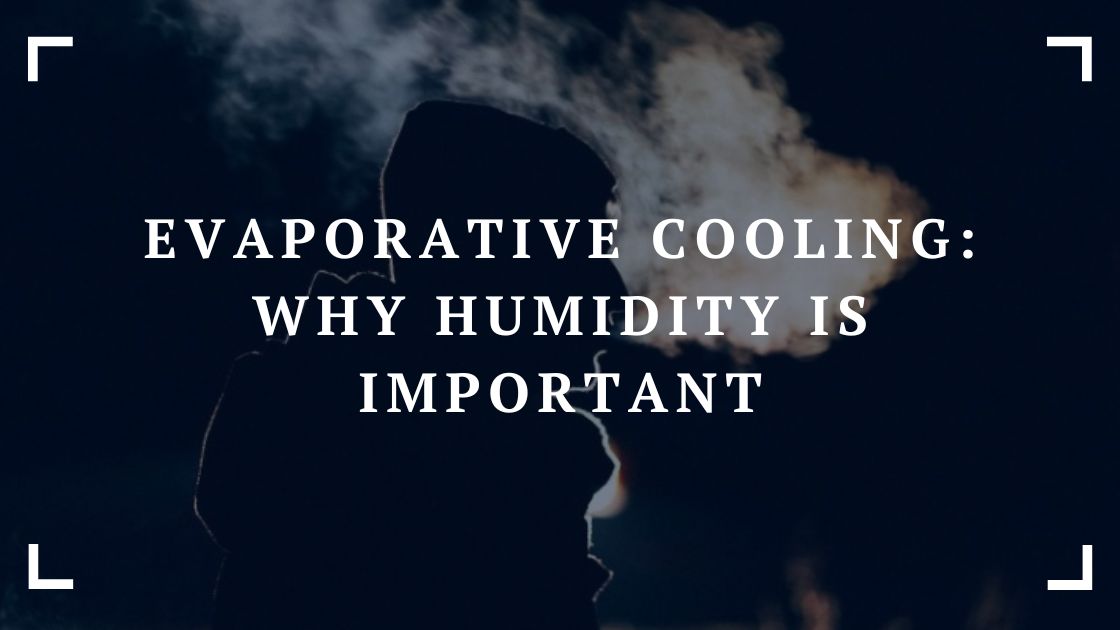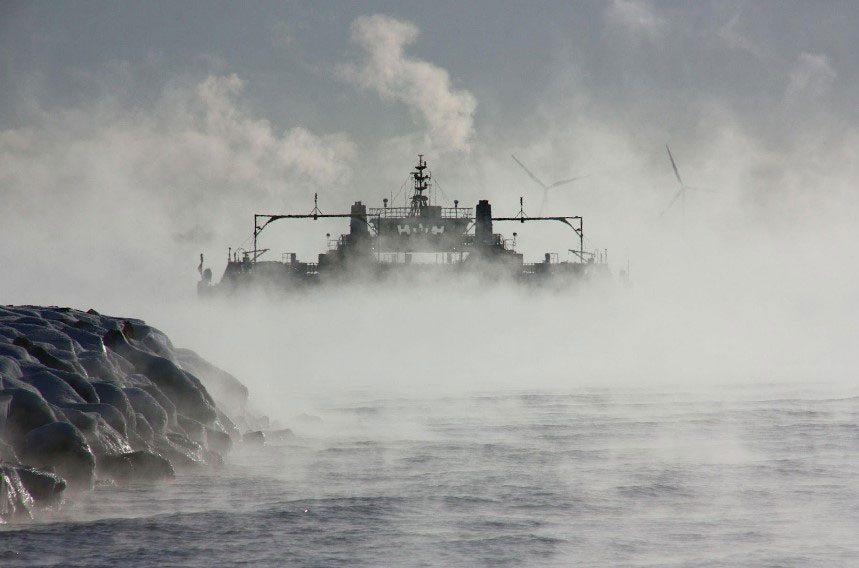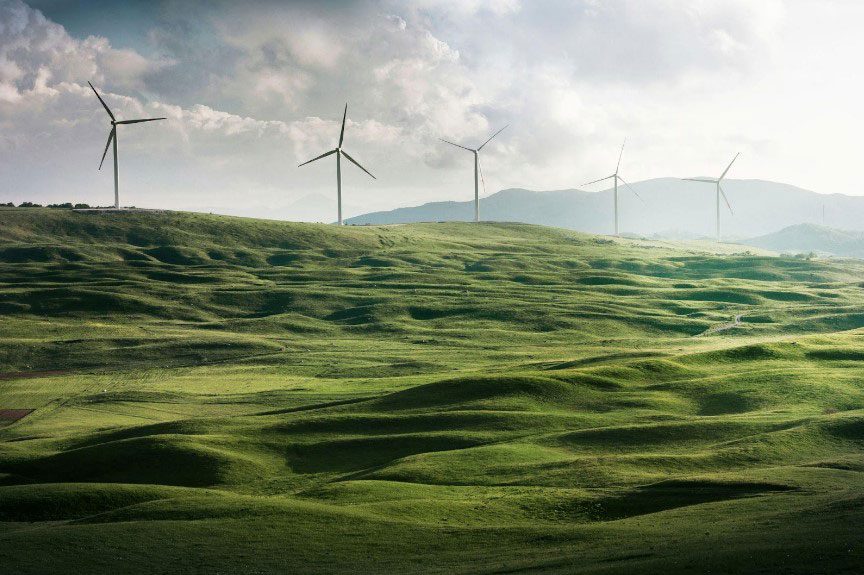With tons of available possibilities for cooling ourselves in the heat, we’re going to outline the natural way, evaporation, i.e. evaporative cooling, our biological process that occurs while we’re sweating.

Even though this happens naturally, there are eco-friendly evaporation coolers, that consume very little energy, and take up little space. Also, if you’re the only person in the house, you don’t need to cool the entire house, you can just cool yourself.
Evaporative Cooling Explained
Cooling the air through evaporation is natural and happens when water evaporates to cool the surroundings. It’s a little contradictory, but it’s true. When you have hot air, and you add some vapor to that air, it will get cooler.
So, this cooling process happens because water molecules absorb the heat, i.e. energy from their surroundings when transitioning from a liquid to a gaseous state. It’s only natural that we’ll notice a decrease in temperature around the vapor.
Cooling systems that use evaporation are based on a structure where there are usually pads soaked in water that filter the air. Now, it can be another medium, but the method is the same, the air that’s warm and dry goes through this medium, water evaporates, and absorbs the heat from the air.
Effects of Humidity on Evaporative Cooling
Humidity is just as important as air dryness in evaporative cooling systems and their work. Low-humidity areas have a higher evaporation potential for water, and it’s likelier for it to cool down the surroundings.

So, when you’re in an arid area, there’s a much higher chance that this kind of system will work properly. The reason is that evaporation can provide higher temperature reduction when there’s room to evaporate.
The two bulbs, wet and dry temperatures are two temperature types that we measure and subtract to see the difference and how much evaporation can happen in a humid setting. We need to account for humidity.
This difference, the one between these two temperatures can be high, and if it is, the possibility for evaporative cooling is larger. But, there’s another way humidity affects the possibility of evaporative cooling, air saturation.
When you feel like you’re sweating, it means that the air is saturated with moisture, and it cannot hold more. Of course, there’s always room for more moisture, but the rate at which water evaporates to create it becomes slower.
There are other factors such as comfort and maintenance. When there’s too much humidity in the air as a result of using an evaporative cooler in a humid area you may feel sick. Also, this may lead to mold and mildew which can in turn lead to feeling sick.
One Disadvantage Many Advantages
The main disadvantage of evaporative cooling is that it doesn’t work in humid areas and we’ve just explained why. Apart from the 70% effectiveness for storage of fruits and vegetables, there are a ton of other advantages as opposed to other cooling systems:
- Energy efficient: They don’t use up as much energy as a regular AC would. So, they’re cost-effective, and if you live in an area with a questionable electricity supply, they’re a good choice.
- Environmentally friendly: It’s obvious why they’re environmentally friendly, they use water as the means of cooling, meaning they don’t emit any greenhouse gasses, and they use less electricity.
- Low cost: It’s cheap to install, it’s cheap to repair, and it’s cheap to replace. Where you’d pay a thousand bucks for a new AC, you might only pay a fourth of it for the evaporative cooler.
- Fresh air: In traditional AC systems, you have air recirculating indoors. With evaporative cooling systems, you have air coming from outside and being filtered before entering the indoors and once again exiting.
- Humidity control: Usually, with traditional ACs, you can get dry air indoors. With evaporative coolers, this is not possible because they add humidity to the air while they’re cooling it.
- Low maintenance: As evaporative coolers have simple designs, they’re not very expensive to maintain. The parts are not complex making them cheaper to manufacture.
- Effective in dry areas: They’re great in dry climates because low humidity means there’s room to evaporate and cool the air. If it’s a hot dry summer, it’s great for evaporative cooling.
- Versatile: You can use evaporative cooling in residential homes, you can use it in buildings, and you might even find it in outdoor settings. The thing is that cooling systems based on evaporative cooling are versatile.
The Feeling of Heat Is Subjective
Apart from thermal receptors, signal transmission, brain processing, behavioral responses, and other sensory things, we feel heat in different ways. And, somehow, the feeling of heat can be a subjective one. Here are the factors that impact how an individual perceives heat:
- Temperature: An objective impact on our subjective feelings is the environmental temperature. So, as the temperature grows the feeling of heat intensifies and as the temperature drops, the feeling of heat weakens.
- Humidity: When in highly humid areas the space for evaporation and cooling reduces. The air is already full of moisture, and evaporative cooling cannot take place. So, sweat cannot evaporate and the body cannot cool itself.
- Airflow: When there’s no airflow, no breeze, or any kind of wind, the air becomes stagnant, and it becomes hotter. There’s nothing to move this hot air away from you and there’s no cooling.
- Clothes: The more clothes you wear, i.e. the more layers there are, the easier it gets for air between those layers to get hotter. So, our feeling of heat depends on clothing as well. Evaporative cooling helps in a different sense.
- Physical activity: When we’re physically active we burn fat which consumes energy. Imagine it like an engine, the fuel burns and the engine keeps running, but it also has a coolant that keeps it just the right temperature. So, sweating is our body’s evaporative cooling system.
- Individual differences: As individuals we perceive heat differently. That’s why we often argue about setting the thermostat. Someone just feels hotter than someone else in the household.
- Acclimatization: When you go from a northern climate to a tropical one, you need to go through this process. This process allows you to feel heat differently while you’re adapting to the temperature.
- Psychology: There are possible biological mechanisms that link our psychology to heat. Imagine being in an auditorium in front of hundreds of people and having to speak, you might feel a little hotter than you are.
Renewable Energy and Evaporative Cooling
The best thing about this type of cooling is that there’s a possibility in the future for evaporative coolers to be driven by solar power. The world would benefit from these solutions in agriculture and personal cooling.

Switching to clean cooling with renewable energy sources such as wind and solar, we can make efficient solutions such as heat pumps that are more environmentally friendly than the traditional AC.
Conclusion
Evaporative cooling doesn’t work well in humid areas https://evapolar.com/blog/evaporative-cooling-and-humidity-what-you-need-to-know/ because there’s no room for water to evaporate as the air is already saturated with moisture. But, evaporative coolers can be an effective solution in arid areas where there’s a lot of dry hot air.
There are many implications for using evaporative cooling both commercially and personally, starting with energy friendliness, and finishing with a cheaper electricity bill.


